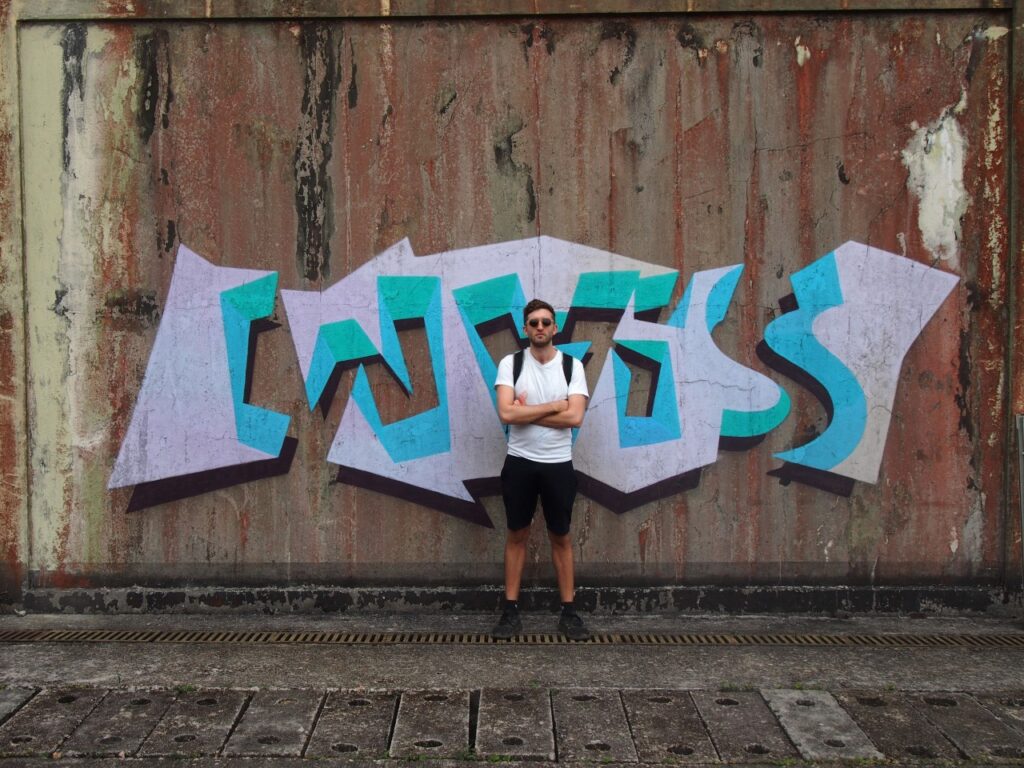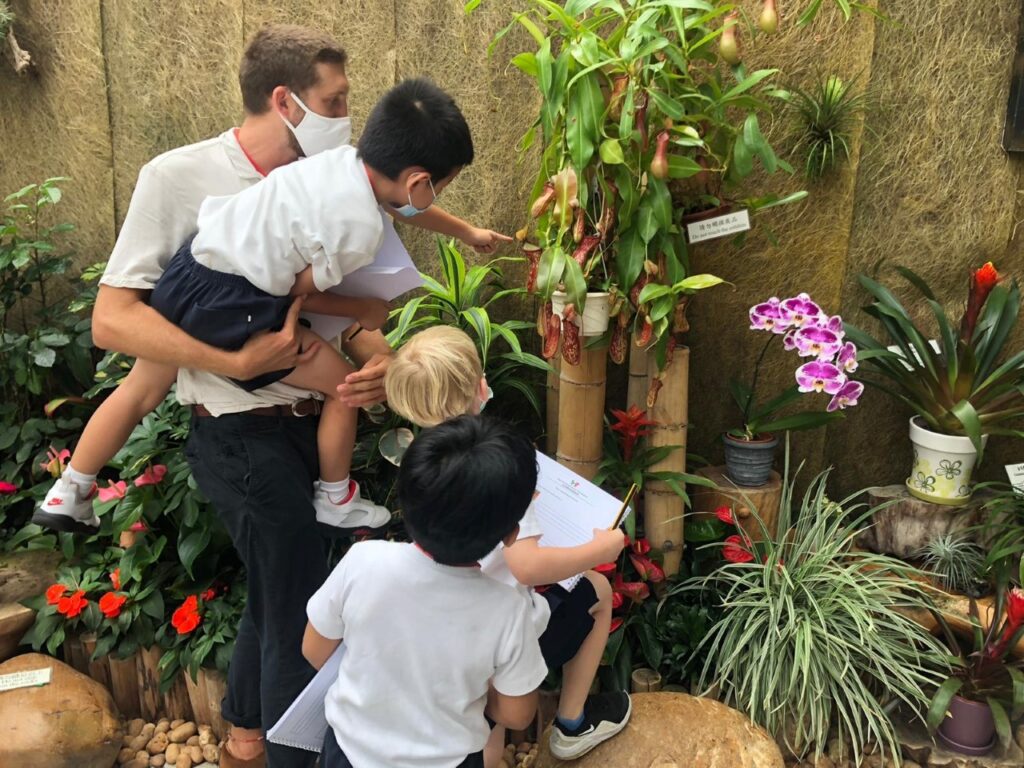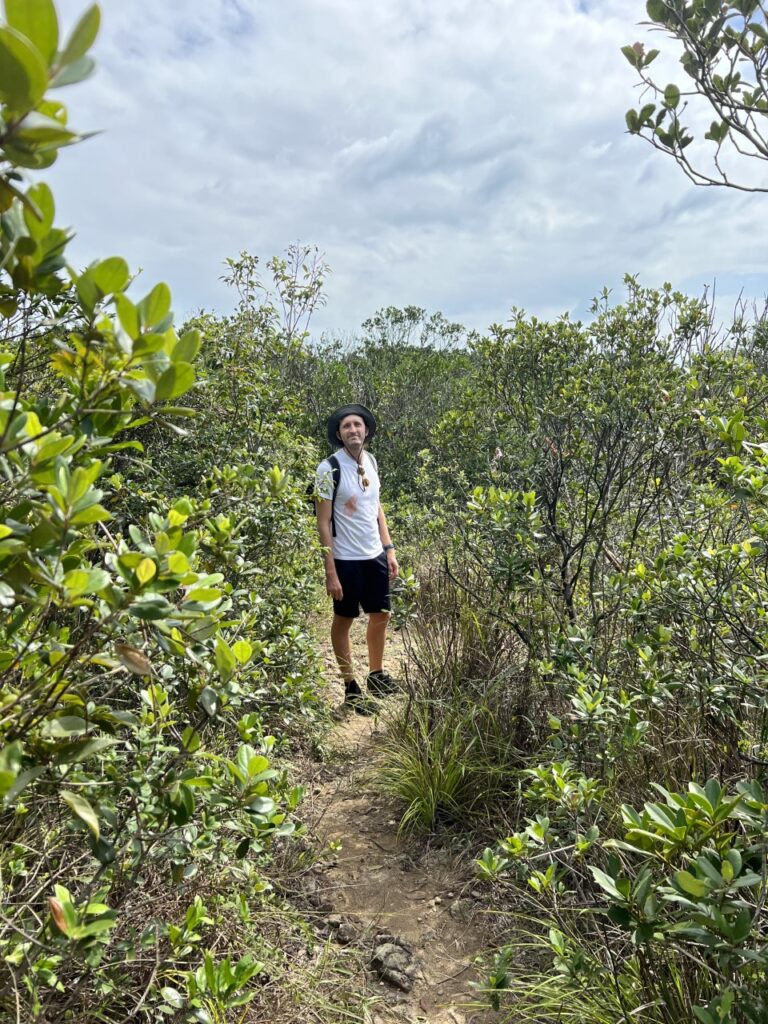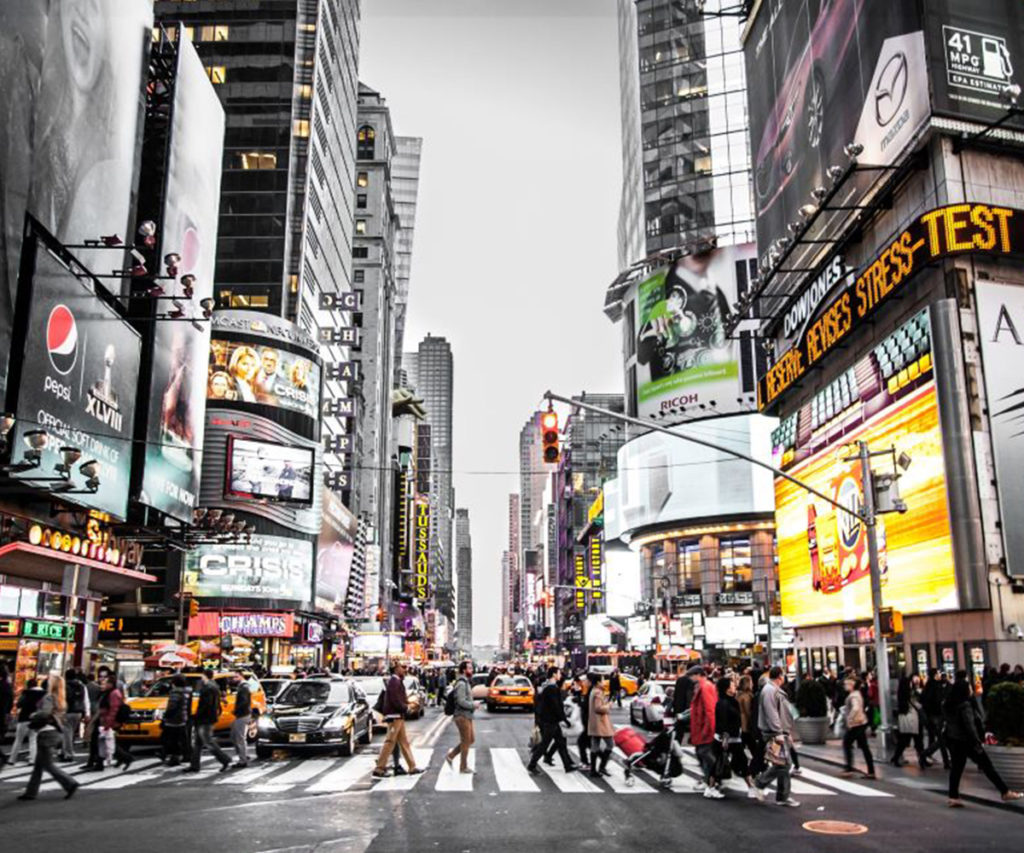“Alone, we can do so little; together, we can do so much.” – Helen Keller
Working together as a community is what drives humanity to make progress. In this interview, Murray Johnson talks about the importance of community through Doughnut Economics, building transparency in the charity sector through the Shared Data Project, his take on Shared Impact and more.
Where did you grow up? How and when did you come to Hong Kong?
I grew up in a city called Durban in South Africa, which is a very sunny and laid-back place. I studied in Cape Town, where I also worked for a few years until I decided I needed to go and do something different. I came to Hong Kong in 2019, after living in Vietnam.

What made you decide to enter the education industry? What is your favorite part of being a teacher?
When I was in South Africa, I was in advertising. I just noticed people trying to get work done before deadlines and getting really stressed. And I was like, “why am I getting so stressed over how much beer and yogurt is getting sold?” I decided I’m going to go to Asia to teach and do something meaningful.
My favorite part about being a teacher is planning a lesson and seeing how it impacts the children. I feel like kids have a perspective that adults lose so it’s cool to notice that. Every day, I’m forming a relationship with these kids and every day, they’re giving me wisdom.
I have heard that you initially connected with the Foundation for Shared Impact through your interest in Doughnut Economics. Can you tell me more about what Doughnut Economics is and how it ties in with the idea of shared impact?
It’s a really big book and it’s about economics. What I understand is that it is a 21st Century way of dealing with issues in the world.
The first thing you read in it is that we have been understanding economics in terms of growth, whereas it should be in terms of sustainability. If there’s a donut, the outside of the donut is planetary boundaries: clean air, water, and biodiversity. The inner ring is humans: whether we have access to water, education, and basic rights. The outside is the environment and the inside is people, so we need to realize that as humans, we’re not apart from nature. We’re within the environment so we have to be conscious of that. Our individual habits and drive are secondary to the fact that we’re a community and have to live with each other. So, I can’t go and take everything to your detriment.
How it ties in with FSI is that we’re addressing 21st Century problems with 21st Century solutions. I guess when I read the book, I realized there’s a problem I want to try to fix. Everyone’s mentality at FSI is very solution-driven, so that’s how I draw the connection. But how my interest in Doughnut Economics connected me with FSI in the first place is when I stumbled upon the profile of TC Li (FSI Communications Manager) on the DE community page, where she included FSI’s website URL.

Tell us more about your current work on FSI’s Shared Data projects?
The Shared Data Project is creating Hong Kong’s most comprehensive Charity Directory, Charity Database, and Funding Database to bring accountability and transparency to the social impact sector.
For the Charity Directory, we’re researching all of the charities in Hong Kong (9,669 of them). We’re collecting key information, like areas of focus, basic information, and financial documents.
For the Funding Database we want to research all the funding opportunities in Hong Kong for charities to see.
Together, the Charity Directory and Funding Database help facilitate stronger relationships and try to hold everyone in the social impact sector accountable to be more transparent with their information.
On the sharing side, our philosophy is that if we all have information that we hold on to, there’s only so much each individual can do by themselves. If we share, we’ll be able to use all the data together and be able to create a larger impact. We are always looking for volunteers. For example, we’ve run a competition with the Impact Lab interns to do some of the research for us.
What do you think companies or individuals can do in order to increase their positive impact?

What can companies or individuals do? Companies and individuals should understand that we are all together and we should not try to do everything simply for our own personal gain. Making a little bit of a sacrifice every now and then does no harm. Think about the broader community instead of just yourself.
Can you describe the biggest inspiration in your life?
Because I’m from South Africa, a lot of what’s in our psyche is the anti-apartheid struggle. It’s part of our narrative every day. The people during the apartheid were at odds but remained hopeful. I listen to a lot of music from the time of the civil rights movement in the US as well, like Sam Cook. So, I guess that’s my biggest inspiration at the moment. Pulling from the songs from that period, I find it quite cool and powerful.
Acknowledgment: This interview was conducted and written by Samiya Sainur, an Impact Lab intern of the FSI Communications and Marketing team.




